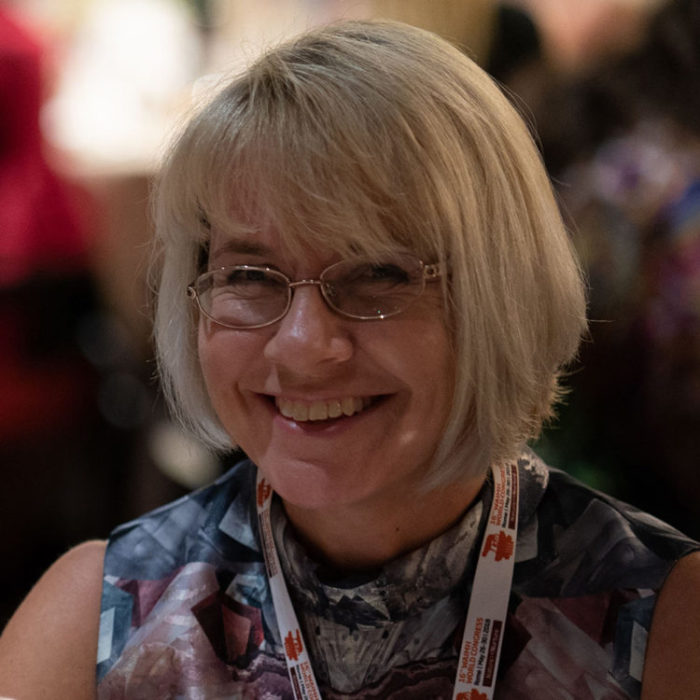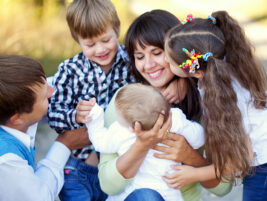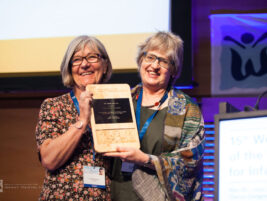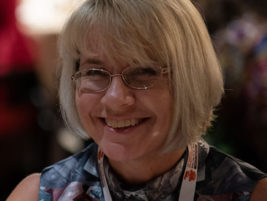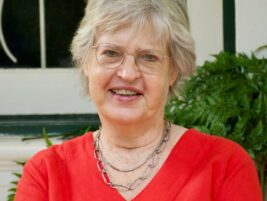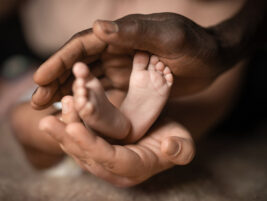Dear colleagues and friends,
We all have difficult periods in our lives at times. For me the past six months have been a period with mixed emotions. Through the winter we have constantly had to read news about terrible things happening in different parts of the world, with natural disasters occurring on top of armed conflicts and resulting in distress for so many families with infants and young children. In my personal life I lost contact with the early education professional in Ukraine who I had supported through regular Teams sessions once a month since last summer. This increased my worry about her and all the young children and their parents she was helping and caring for. And just when our long winter turned into spring, a close colleague and friend of mine experienced a great loss that made me think how we humans sometimes face so much grief and anxiety, yet still find ways to carry on with our lives.
As a contrast to the challenging life events, my classmate from medical school and a friend of 40 years came for a visit and gave me the book Factfulness (2018) written by Hans Rosling, Anna Rosling Rönnlund and Ola Rosling. The book gives the reader facts on how much better things are in the world nowadays in contrast to what the information we get from news and other media may make us believe. Hans Rosling was a Swedish physician, professor of international health and co-founder and chairman of the Gapminder Foundation, which developed the Trendalyzer software system. Hans Rosling mentions in his book how hard it can be to believe the positive facts of the world when your brain is wired to be constantly looking out for threat and possible calamity (something the media uses for its advantage), and that was my experience as well while I read the book and visited the Gapminder website. But the facts are that the number of children dying prior to their fifth birthday has steadily decreased, the proportion of children vaccinated against harmful diseases, and life expectancy have increased globally. These improvements are the result of people in different countries and organizations working together for the common good, slowly but surely.
Soon after my friend’s visit my Ukrainian friend emailed that they had restored electricity in their town, and we were able to re-establish our collaboration. Being able to see each other on the screen and to talk about children’s experiences and symptoms together was a great relief for both of us. In these consultation or supervision sessions I believe the most empowering factor for my friend is being in contact with another professional working with young children and being supported in what she is doing. For my part I am grateful for the opportunity to offer my friend at least some support so that she can in turn support and help both children and their parents.
In Finland we have a saying “Jaettu ilo on kaksinkertainen ilo, jaettu suru on puoli surua” which means that shared joy is doubled, and shared grief is halved. Human connection, sharing emotions and thoughts about happy and sad things in life is the way to cope with hardship. And it doesn’t always even need words. Just being able to be together can be enough. Our 18th WAIMH World Congress in Dublin, Ireland is rapidly approaching and I don’t think I’m alone in eagerly waiting to see – and hug – friends and colleagues I haven’t been able to meet in person for so many years. At the Dublin congress we will for the first time have a space where anyone can come to share with others their thoughts and experiences of childhood and parenting. The open space is not part of the scientific program, but more of an opportunity to meet others and maybe find new friends from the “WAIMH family”.
With warm wishes to you all,
Kaija
References
Rosling, H. (2018). Factfulness. Flatiron Books.


